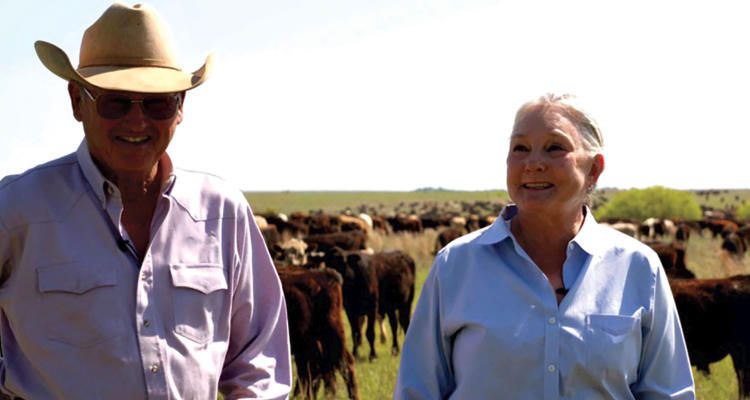Meat Isn’t Done Yet. ASU is researching a better way to raise cattle

As environmentalists continue to advocate for a meat-free diet – and shortages and illness disrupt the meat supply during the COVID-19 pandemic – Peter Byck, a professor of practice at Arizona State University, is showing that farmers can raise cattle while significantly reducing their carbon footprint.
Carbon Cowboys, the filmmaker’s series of documentary shorts released in May on YouTube, interviews ranchers from around the world about how Adaptive Multi-Paddock grazing (AMP) has made their jobs easier and allowed them to get out of debt.
By rotating cattle from pasture to pasture before they can damage the land, farmers can build stronger, pesticide-free, carbon-rich soil that boosts crop and livestock yields and can help farms sustain droughts and even pandemics because they sell their product directly to consumers. Doing this allows them to set their own prices and make a tidy profit.
“You have only a few [industrial] factories producing meat,” Byck says. “Then, people get sick, and they have to shut it down. The farmers in our film have seen their sales increase from 300 to 1,200 percent.”
In one of the videos, a farmer says a vegan couple purchased a pound of hamburger from him because they saw how humanely he treated his cattle. But according to Byck, it’s not going to matter if you’re an herbivore or an omnivore if food is grown industrially with chemicals and plowing.
“You have to have healthy soil, period,” he says.
Despite the benefits of AMP farming demonstrated in Carbon Cowboys, farmers have been slow to come around to it. So Byck, along with ASU and McDonald’s, is leading a $6.3 million collaborative research project to show how the method can make their land and food supply chains more resilient.
“I’m always looking for common ground, and I realized that the common ground is the ground,” Byck says.